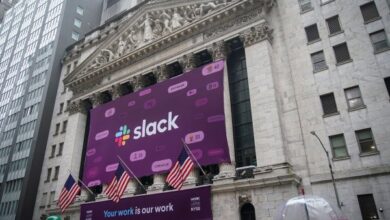Thought Catalog/Unsplash.com
Facebook’s brief but tempestuous standoff with the Australian government over a world-first pay-for-news law is only the start of a string of regulatory battles that the world’s biggest social network faces in 2021.
Mark Zuckerberg started the year on the offensive, blocking news across Rupert Murdoch’s home turf of Australia to fend off demands that Facebook pay media companies for content shared on its platform.
On Tuesday, Zuckerberg struck a compromise after 11th-hour talks with the government on the legislation that’s also aimed at Google and is expected to pass Australia’s parliament this week. But a regulatory domino effect is already underway, with publishers pressuring the European Union to emulate Australia’s approach.
With the prospect of more assertive regulation and even Apple questioning Facebook’s longstanding model of using data to better target advertising, the social media platform’s way of doing business faces being upended.
US legislators are voicing the loudest concerns about Facebook, with Rhode Island congressman and antitrust subcommittee chairman David Cicilline tweeting that the company “is not compatible with democracy”. Congress is holding hearings this week to consider tougher antitrust measures to rein in the powers of the company and other tech giants.
Australian Prime Minister Scott Morrison, meanwhile, said he’s discussed Facebook with Indian Prime Minister Narendra Modi, Canadian leader Justin Trudeau, French President Emmanuel Macron and the UK’s Boris Johnson, whose government plans to conduct antitrust probes into its operations.
WhatsApp policy update
Facebook has struggled to shake off deep-seated distrust since the Cambridge Analytica scandal exposed failings in safeguarding personal data. It courted fresh controversy this January when WhatsApp’s privacy policy was updated to help it share more information with its parent, leading to several lawsuits and a flood of users joining rival messaging services Telegram and Signal.
Facebook’s abrupt move to cut off news-sharing in Australia — jeopardising credible sources of information about the coronavirus during a crucial time in vaccine rollout — was widely criticised. But the high stakes gambit did help it wring some concessions from the government, which announced key amendments to the planned law on Tuesday. Crucially, Facebook and Google can decide what commercial deals to cut with news publishers, and will only face forced arbitration as a last resort.
The “lesson for regulators and governments around the world is, Facebook is a formidable foe that’s willing to pull out the big guns to get what it wants”, former Facebook Australia and New Zealand CEO Stephen Scheeler said in a phone interview on Wednesday. The Silicon Valley firm has the power “to essentially undermine a government position on a topic”.
Facebook could be forced to sell Instagram
Among its other battles, the company has been hit with a lawsuit by the US Federal Trade Commission alleging a “multi-year course of illegal conduct” and anticompetitive behaviour. An unfavourable ruling in that case could ultimately force Facebook to sell off Instagram.
And Zuckerberg, along with the leaders of Twitter and Alphabet, will be answering US legislators’ questions in March about the spread of misinformation online and the responsibility of platforms to curtail it.
In response to mounting criticism, Facebook last year set up an oversight board of academics, lawyers, journalists and human rights advocates to review its content decisions and try to tamp down concerns about its influence. The board’s rulings are binding: It’s reversed a number of the company’s decisions and next on its agenda will be to judge the validity of former President Donald Trump’s indefinite suspension from Facebook and Instagram.
Outside of elected officials, the social network is involved in another thorny dispute with a rule-setting body of sorts: Apple. The iPhone maker plans changes to privacy rules on its mobile devices that will require explicit permission before software makers can collect certain data and track user activity across apps and websites.
Facebook, which relies on such information to fine-tune its ads, has been fighting the move in the public arena, taking out full-page advertisements in US newspapers and presenting itself as an advocate for small businesses.
Global benchmark
Meanwhile, the Australian legislation could serve as a global benchmark for how to force tech titans to the negotiating table and pay the traditional media for their news content.
Johan Lidberg, an associate professor at Melbourne’s Monash University who specialises in media and journalism, said he’s been inundated with calls from overseas publishers “who want to talk about what actually happened in Australia and how did it come about”.
“The next two years are going to be fascinating to watch,” he said. Facebook will have to make some fundamental choices, because “it is not long-term sustainable to have such dominance by so few players in the marketplace.” — Reported by Vlad Savov, (c) 2021 Bloomberg LP




